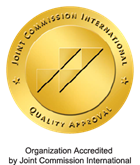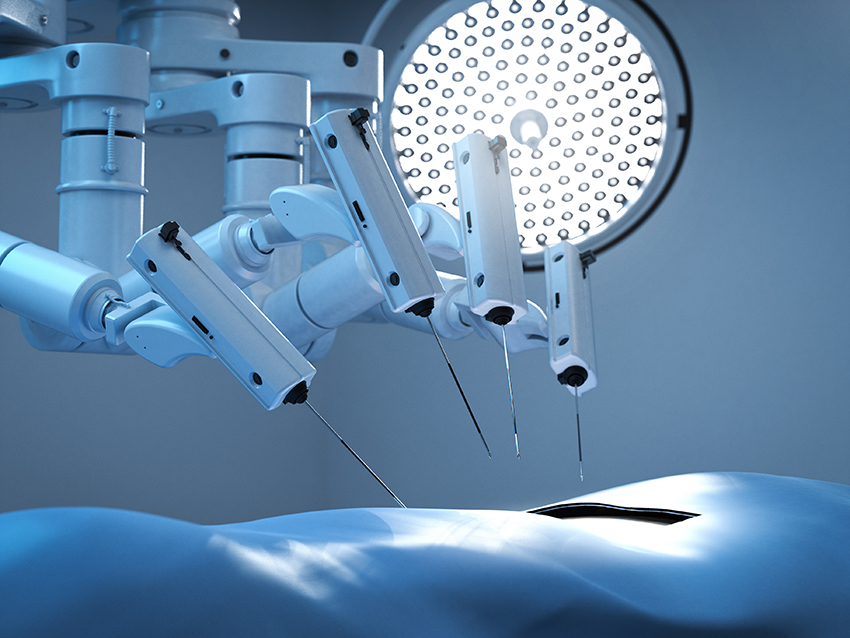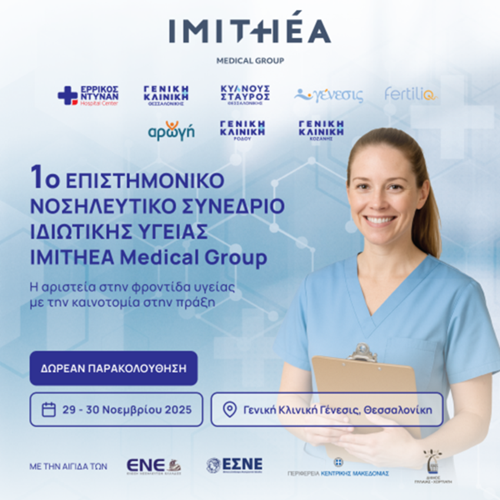A new milestone in gynecologic oncology has been set with the first robotic nipple-sparing mastectomy performed in Greece by a multidisciplinary medical team, coordinated by the Department of Gynecologic and Robotic Surgery at Henry Dunant Hospital Center.
The pioneering procedure, carried out on a 44-year-old patient, opened new horizons: robotic technology was used for a bilateral mastectomy of maximum precision, preserving the skin and nipples, combined with immediate breast reconstruction. The new method, performed with the state-of-the-art Da Vinci Xi robotic system available at Henry Dunant, essentially marks the future of breast surgery. It ensures a minimally invasive technique, with a small surgical incision, faster recovery, and excellent oncological and aesthetic outcomes. The patient was discharged within 48 hours.
The innovative procedure—carried out with the collaboration of a large multidisciplinary team of specialized general surgeons, breast surgeons, gynecologic oncologists, robotic surgeons, and plastic surgeons—was coordinated by Professor Dimitrios Bolovis, Chair of Obstetrics and Gynecology at the University Hospital of Nuremberg and Director of the Department of Gynecologic and Robotic Surgery at Henry Dunant. The operation was performed by Mr. Ioannis Papapanagiotou, Gynecologist and Breast Surgeon. An instrumental role was played by Mr. Antonio Toesca, Director of the Breast Unit at the Candiolo Cancer Institute in Turin and a pioneer in the development of robotic breast surgery, who traveled to Athens specifically for the successful performance of the first robotic nipple-sparing mastectomy in Greece. The multidisciplinary team also included Mr. Georgios Metaxas (Breast Surgeon), Professor Konstantinos Dimitrakakis (Director of the Breast Unit at Alexandra Hospital), Ms. Aikaterini Stylianaki (Plastic Surgeon), and Mr. Georgios Giannitopoulos (Director of the Anesthesiology Department at Henry Dunant).
Robotic nipple-sparing mastectomy is performed through a very small, strategically placed 3-cm incision in the axilla, making it invisible, while preserving the skin and nipple and minimizing disruption to surrounding tissue. Reconstruction is carried out in the same session, with implants inserted through the same 3-cm incision. This new technique, now followed by specialized oncology centers across the EU and the USA, offers significant advantages over traditional mastectomy: a larger incision and visible scar, longer recovery period, and a greater sense of loss for the patient. Robotic breast surgery is highly individualized, with the treatment plan tailored to each patient’s characteristics. Candidates for robotic mastectomy are women with medium or small breast size who must undergo mastectomy either prophylactically (due to a gene mutation and a strong family history of breast cancer) or for early-stage malignancy.
Commenting on the first procedure in Greece and the benefits of robotic breast surgery, Professor Dimitrios Bolovis noted: “The robotic system offers surgeons greater precision and control, reduces postoperative complications, while the smaller incision allows better preservation of the nerves around the breast and their function. As a result, breast sensitivity is maintained to a greater extent after surgery, while the patient’s psychological and emotional well-being —an equally critical factor—is strengthened.”
It is worth noting that, a scientific meeting was held at the Amphitheater of the Henry Dunant Hospital Center, organized especially for this groundbreaking procedure, with distinguished robotic surgery experts from university hospitals in Germany, Italy, and the United Kingdom following the pioneering operation via live connection to the operating room. Welcoming the international team of robotic surgeons to the hospital, Mr. Roberto Greco, CEO of Imithea Single Member S.A., the parent company of Henry Dunant, emphasized: “Henry Dunant and Imithea Group place strong emphasis on innovation, technological advancement, and the personalized, multidisciplinary management of every case—particularly in the field of oncology—and it is with this vision that we are preparing our next steps.”





